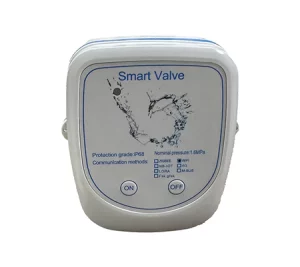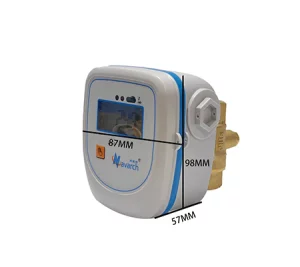Evite que su consulta retrase la respuesta, ingrese su WhatsApp/WeChat/Skype junto con el mensaje, para que podamos comunicarnos con usted lo antes posible.
Le responderemos en un plazo de 24 horas. Si para el caso urgente, por favor agregue WhatsApp: +8613188899036, o WeChat: 0531-87968777. O llame directamente al 0531-87968777.
* Respetamos su confidencialidad y toda su información está protegida. Solo utilizaremos su información para responder a su consulta y nunca le enviaremos correos electrónicos ni mensajes promocionales no solicitados.
Are your pipes wasting money? Do you spend too much on fixing leaks? Old valves can’t tell you when things go wrong. They just sit there while water leaks o energy costs go up.
Think about this: 15-30% of your energy bill might be going to waste right now. That’s real money lost every day.
Most buildings have old valves that need a person to check them. When something breaks, you find out too late. By then, the damage is done.
Waste gets worse over time. A small leak today becomes a big flood tomorrow. High energy bills now mean even higher costs next year.
Without smart valves, you face:
The American Water Works Association found that old systems detect leaks 50% slower than smart ones. By then, the damage is done.
In HVAC systems, traditional valves waste up to 30% of your heating and cooling energy. That’s like throwing away $3 of every $10 you spend.
Navarch’s válvulas inteligentes fix these problems by watching your system all day and night. They can stop waste before it costs you money.
Nuestra Válvula inteligente WiFi connects to your phone and sends alerts when something’s wrong. It can even fix some problems on its own!

Válvula inteligente WiFi
| Característica | Old Valves | Navarch Smart Valves |
|---|---|---|
| Control | Need a person | Work on their own |
| Data | Ninguno | Real-time readings |
| Fixes | After damage happens | Before problems start |
| Savings | Ninguno | 15-30% on energy |
Smart valves have special parts that make them smart:
Sensores that check:
Brains that think:
Talking tools that send info:
Nuestra válvula de agua inteligente works even when the internet is down. It keeps talking to other smart things in your building.
Case Study: Office Building
Like ABB found in New York City, smart valves saved building owners $1.2 million every year just by making small changes to water flow.
When you put in Navarch smart valves, you get:
Our valves help in many ways:
El smart radiator valve works in tall buildings to balance water pressure on every floor. No more hot water waits!

válvulas inteligentes
Smart valves keep fluids moving at just the right speed. Ford cut energy by 12% after putting in valves like ours.
Nuestra best radiator smart valve finds tiny leaks before they grow big. Cities have cut water waste by 25% with this tech.
Smart valves for water save up to 45% on irrigation. That means more crops with less water.
Not all smart valves are the same. Here’s what to think about:
What’s it for?
How will it talk?
How smart do you need?
What makes our valves better:
Do smart valves work if the internet goes down?
Yes! They have backup smarts that keep working.
How long do smart valves last?
About 10-15 years with basic care. That’s 20% longer than basic valves.
Can I check them from my phone?
Yes, our app shows you everything happening in real time.
Will they work with my old system?
Almost always! We make sure they fit what you have.
Smart valves are getting even better:
Waste less. Save more. Know more.
Navarch’s smart valve systems give you control that old valves can’t match. While others wait for problems, you can stop them before they start.
Talk to us about how smart valves can help your building, factory, or farm work better while saving money.
Key Points to Remember:
The choice is clear: keep wasting money with old valves, or switch to smart valves that pay you back every day.
Call Navarch today to learn which smart valve system is right for your needs.
30%
Average Energy Savings
50% Faster Leak Detection
40% Maintenance Cost Reduction
ROI Period
3 yrs vs 5 yrs
Incident Rate
↓90%
Data sources: U.S. EPA, Deloitte, Grand View Research